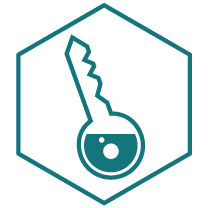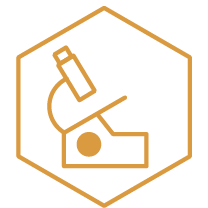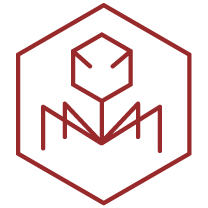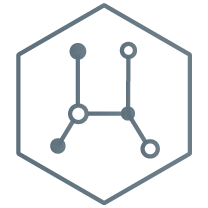Lehigh's SEA - PHAGES courses have been re-designed as a result of the successful research undertaken by previous Lehigh in the SEA students.
APPLY HERE
How does the program work?
Lehigh University is one of several institutions selected by the Howard Hughes Medical Institute (HHMI) Science Education Alliance (SEA) to participate in the PHAGES (Phage Hunters Advancing Genomics and Evolutionary Science) Program.
Students selected for the program will participate in research-focused phage genomics courses in which the genomes of novel bacteriophages (viruses that infect bacteria), isolated from local soil samples, are characterized by sequencing, gene annotation methods, and molecular genetic analyses. Students will learn a variety of techniques that span several disciplines, including microbiology, molecular biology, genomics, and bioinformatics. This phage project is an outgrowth of research interests of Professor Graham Hatfull (University of Pittsburgh) who studies the molecular genetics of mycobacteria and the viruses that infect them.
All institutional members of the SEA-PHAGES Program, HHMI staff, and the Hatfull Laboratory are connected by the Internet, allowing data to be shared and discussed. Research results from Lehigh students will be disseminated to other faculty and students in the SEA-PHAGES Program, creating a nationwide community of scholars in pursuit of understanding how mycobacteriophage genomes are organized.
Spring semester
First year students will begin the SEA - PHAGES Program by enrolling in BioS 43 (Phage Hunting Labratory; 2 credits). This course will meet twice a week and will subsititute for the BioS Core I Laboratory requirement (BioS 42). Students will also enroll in BioS 41 (Bio Core I: Cell & Molecular Biology) as a corequisite for the SEA - PHAGES course. Third and fourth year students may enroll in BioS 318 (Advanced Phage Research Lab; 1-3 credits). This course is available in both Spring and Fall and is repeatable for credit.
In BioS 43, students will isolate and purify bacteriophages from local soils. Physical features of phages will be determined by electron microscopy and genome profiles will be obtained by DNA analysis. Purified DNA from a novel phage(s) will be sent for sequencing over the summer.
Fall semester
Students will enroll in BioS 188 (Phage Genetics Laboratory; 2 credits). This course will meet twice a week and will substitute for the BioS Core II genetics laboratory requirement (BioS 116). Students will also enroll in BioS 115 (Bio Core II: Genetics) as a corequisite for the SEA - PHAGES course.
Students will perform phage genome annotation on previously sequenced phage genomes using bioinformatics tools. Students will focus on genetic analysis of novel bacteriophage genomes to determine gene function using recombineering strategies. Additional genetics, molecular biology, and/or biochemical research on previously isolated bacteriophages will be included.
How does one qualify for the program?
For Spring
As a first year student, you will be eligible to apply for the BioS Core I SEA - PHAGES (BioS 43 - Phage Hunting Labortatory) course to be offered in the Spring semester of your first year.
For Fall
(2nd semester of program)
Students (previously enrolled in BioS 43 - Lehigh in the SEA I - or with instructor permission if no BioS 43 prerequisite) will enroll in BioS 118 - Phage Genetics Laboratory. This course will substitute for Core II lab requirement - BioS 116. You must also be enrolled in BioS 115 - Core II: Genetics or receive permission of the instructor for a pre-requisite waiver. Those receiving a waiver will be expected to enroll in BioS 115 lecture at a later date.





